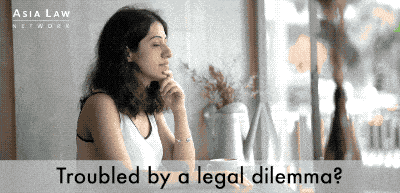You can’t take your possessions to the grave, but you certainly can Will it to your loved ones!
With globalisation and increased international travels, with the ever-growing options and ease of investing internationally, you find yourself with overseas bank accounts and properties, and even eligibility to work and live overseas. As your assets and investments are no longer restrained by international boundaries, and as you turn your mind to planning your estate and legacy, you inadvertently have to consider how to effectively contain, distribute or protect these assets for your beneficiaries. You have to contemplate how your overseas assets are properly distributed to your loved ones – otherwise, they could very well be left neglected and ignored, or even squandered, simply because they were overlooked!
Due to the different laws and foreign jurisdictions that can apply to your overseas assets, it can become tricky when trying to ensure that your Will is not inadvertently rendered invalid overseas. There are generally two approaches to avoid that situation:
- Creating a separate Will for each jurisdiction where your assets lie; and
- Including the overseas assets in a Will made in Singapore.
Creating a separate Will for each jurisdiction where your assets lie
In your will, you appoint a person to carry out your instructions on how to divide your assets. This person is called your executor. You can appoint one or more persons as your executor but for simplicity, we will refer to the executor as a female singular.
Upon your death, before your executor can take hold of your assets within a jurisdiction, she must obtain the local court’s order that grants her such authority. The court requires the will to be valid in that jurisdiction. The laws on the validity of wills and the laws that may apply to override even valid wills can vary between jurisdictions. Therefore, the simplest way to ensure that your intentions regarding your assets in a particular country are carried out accordingly is to write a will in that particular jurisdiction with sound legal advice. That way, you can minimise the risk of the local court refusing to recognise your will, the risk of your instructions in a valid will from being superseded by other laws in force.
Is a jurisdiction the same as a country?
In Singapore, the laws on wills and administration are uniform within the country. This may not be so in other countries. For example, in the United States, laws can differ between states. If you are writing a will in a country such as the United States, it would make sense to write a will in the State where your assets lie.
Do you mean that when I have assets in a particular jurisdiction, I must write a will there and my executor still has to obtain a court order there before she can take charge of my assets in that jurisdiction?
Generally yes. There are costs associated with writing a will and costs to your estate for obtaining a court order in each jurisdiction. It is, therefore, useful to consider the effect on your estate planning when distributing assets across jurisdictions.
If I write separate wills for each jurisdiction, can the change of a will in one jurisdiction affect those in others?
There is a real risk that a subsequent will cancels an earlier one in another jurisdiction. Therefore, where you have a separate will for each jurisdiction, it is critical that each will is restricted only to assets within that jurisdiction. A will drafted by a qualified lawyer with clear instructions and sound advice will help you avoid this problem.
Including your overseas assets in a Will made in Singapore
It is possible for your will in Singapore to direct your executor on certain overseas assets. Commonwealth countries such as Malaysia and Australia are able to recognise and “reseal” probate granted by the Singapore court. This means that you can write a will for your assets in Singapore and also include assets in such countries without having to write a separate will in each of them. This can be useful if the majority of your assets are in Singapore and your assets in such a countries are simple, such as a single bank account or a single property.
However, resealing a foreign grant also involves a court application and, with it, associated time and costs. In some instances, even though there are assets in a jurisdiction, the executors may have to make a better financial judgment to abandon those assets due to the costs of getting access to them. You may, therefore, wish to consider the size of your foreign assets as compared with the potential costs of administration.
Need legal advice for wills, probates and trust?
If you need legal advice for wills, probates and trust, you can get a Quick Consult with Kenneth or other lawyers. With Quick Consult, you can check out in minutes and for a transparent, flat fee, the lawyers will call you back on the phone within 1-2 days to answer your questions and give you legal advice.
This article is written by Kenneth Lie from Characterist LLC and edited by Tang Chee Seng from Asia Law Network.
This article does not constitute legal advice or a legal opinion on any matter discussed and, accordingly, it should not be relied upon. It should not be regarded as a comprehensive statement of the law and practice in this area. If you require any advice or information, please speak to a practicing lawyer in your jurisdiction. No individual who is a member, partner, shareholder or consultant of, in or to any constituent part of Interstellar Group Pte. Ltd. accepts or assumes responsibility, or has any liability, to any person in respect of this article.
Continue reading:


